Animation & Visual Effects (Certificate)
Animation & Visual Effects (Certificate)
The four year certificate program provides students with a disciplined approach to the study of Animation & Visual Effects. Student portfolios will demonstrate the variety of skills and creativity developed. Graduates enter the field prepared for professional opportunities in Animation & Visual Effects. Students take electives and art history courses to round out their experience. Unlike the BFA program, students pursuing the Certificate program do not take liberal arts coursework.
AA BFA MFA CERTCertificate
This program is only available onsite.
Core Classes
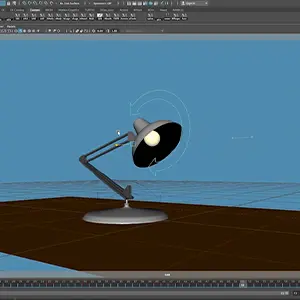
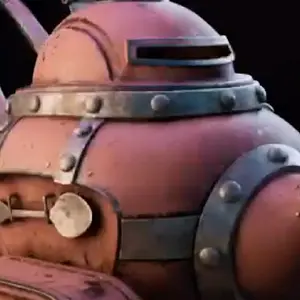

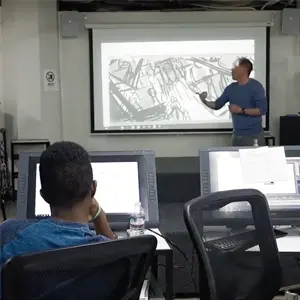


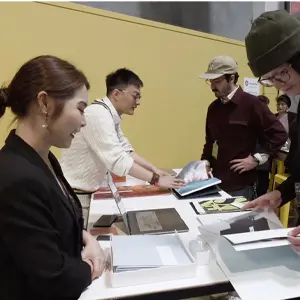

Unit Requirements
| Major Coursework | Units |
|---|---|
| Core | 24 |
| Sophomore Portfolio | 3 |
| Senior Portfolio | 3 |
| Major | 48 |
| Art History | 6 |
| Art by Advisement | 24 |
| Electives | 12 |
| Total | 120 |
Degree Requirements
ANIMATION & VISUAL EFFECTS CERTIFICATE REQUIREMENTS
- Minimum 2.0 GPA
- Minimum grade of C- in all core courses and major courses
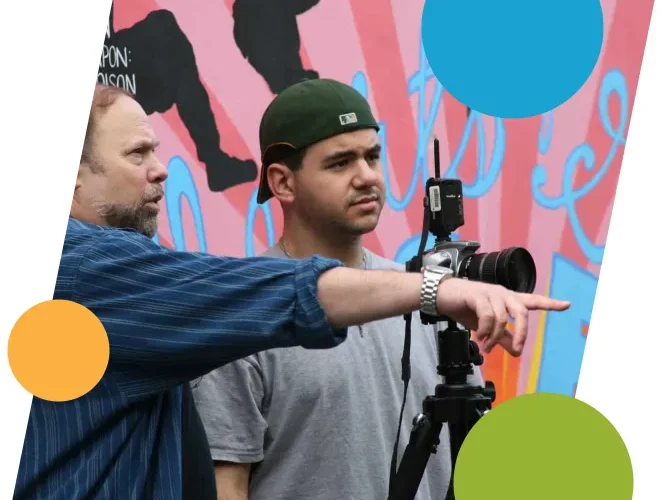
Program Learning Outcomes
Undergraduate students will meet the following student performance criteria:
Visual Communication and Problem Solving
- Make effective design choices to support narrative, character, and/or mood
- Demonstrate the ability to research for inspiration, reference, accuracy, and incorporate findings into design solutions
- Create digital elements/effects appropriate to assignment parameters
- Demonstrate an understanding of cinematic continuity through sequential imagery
- Demonstrate proficient drawing and/or modeling skills: composition, perspective, proportion, and anatomy
- Successfully convey motion and interaction of character and/or object kinesis
Technical Skills
- Demonstrate facility and flexibility with animation and/or VFX technology and software
- Demonstrate facility with digital media
Professional Readiness
- Assemble a professional digital or portfolio demonstrating an understanding of the target market
- Demonstrate an understanding of the production pipeline through successful participation in the collaborative / pipeline process
Specialty Skills: Storyboarding
- Create and pitch stories and concepts through the use of sequential imagery
- Demonstrate an understanding of cinematic continuity by creating sequential imagery that supports narrative, character, and/or mood
- Demonstrate proficient drawing skills: composition, perspective, proportion, and anatomy
Specialty Skills: 2D Animation
- Apply the principles of animation to effectively communicate character action, emotion, and mood
- Convey motion (biped and quadruped) and the interaction of moving objects
- Demonstrate proficient drawing skills: composition, perspective, proportion, and anatomy
- Demonstrate facility and flexibility with both relevant character and asset creation tools
Specialty Skills: Modeling
- Model with appropriate use of form, proportion, and anatomy
- Create and apply texture and lighting consistent with the overall look of the project
Specialty Skills: 3D Animation
- Apply principles of animation to effectively communicate character action, emotion, and mood
- Convey motion (biped and quadruped) and interaction of moving objects
Specialty Skills: Visual Effects Compositing
- Design and generate digital elements and effects that meet the needs of the imagery
- Combine digital effects and elements from diverse sources to create a fine degree of visual believability and consistency
Specialty Skills: VFX Producing
- Exhibit an understanding of how VFX pipeline skills and tools support animation by clearly and effectively presenting project management work samples
Specialty Skills: Rigging
- Create efficient and effective integration of rigs into original or collaborative projects
Specialty Skills: Stop Motion Animation & Fabrication
- Apply the principles of animation to effectively communicate character action, emotion, and mood
- Convey motion (biped and quadruped) and interaction of moving objects
Specialty Skills: Dynamics
- Apply appropriate integration dynamics into professional-quality shots or sequences
Specialty Skills: Texture & Lighting
- Create and apply texture and lighting consistent with the overall look of the project
- Apply appropriate integration of lighting and texturing skills into professional-quality shots or sequences
Academy of Art University Learning Outcomes
Graduates of the Academy of Art University will demonstrate the ability to:
- Produce a body of work suitable for seeking professional opportunities in their chosen field of art and design.
- Solve creative problems within their field of art and design, including research and synthesis of technical, aesthetic, and conceptual knowledge.
- Communicate their ideas professionally and connect with their intended audience using visual, oral, and written presentation skillsrelevant to their field.
- Execute technical, aesthetic, and conceptual decisions based on an understanding of art and design principles.
- Use professional terminology to evaluate their work and work in the field.
- Recognize the influence of major cultural and aesthetic trends, both historical and contemporary, on art and design products.
- Learn the professional skills and behaviors necessary to compete in the global marketplace for art and design
- Engage with a variety of communities beyond the classroom through internship opportunities, study abroad programs, athletics, student interest clubs, and participation in collaborative, civic, and pro bono projects.
*Semester plans are subject to change at any time. Semester breakdowns displayed are suggested and additional options are available to help customize your educational experience. Speak to an admissions or student services representative for more information. Please see our catalog for more details at: https://catalog.academyart.edu